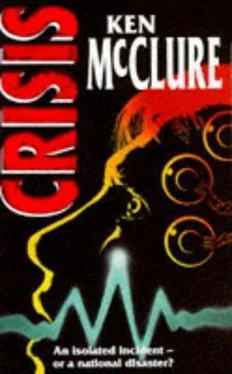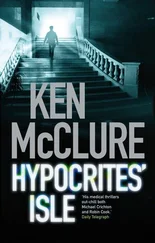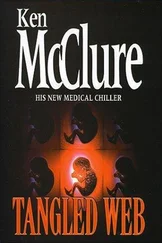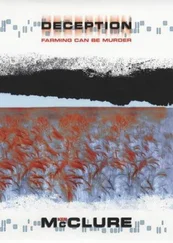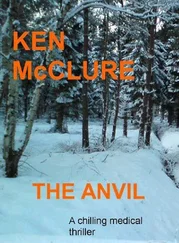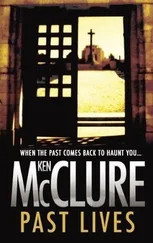Ken McClure - Crisis
Здесь есть возможность читать онлайн «Ken McClure - Crisis» весь текст электронной книги совершенно бесплатно (целиком полную версию без сокращений). В некоторых случаях можно слушать аудио, скачать через торрент в формате fb2 и присутствует краткое содержание. Жанр: Триллер, на английском языке. Описание произведения, (предисловие) а так же отзывы посетителей доступны на портале библиотеки ЛибКат.
- Название:Crisis
- Автор:
- Жанр:
- Год:неизвестен
- ISBN:нет данных
- Рейтинг книги:3 / 5. Голосов: 1
-
Избранное:Добавить в избранное
- Отзывы:
-
Ваша оценка:
- 60
- 1
- 2
- 3
- 4
- 5
Crisis: краткое содержание, описание и аннотация
Предлагаем к чтению аннотацию, описание, краткое содержание или предисловие (зависит от того, что написал сам автор книги «Crisis»). Если вы не нашли необходимую информацию о книге — напишите в комментариях, мы постараемся отыскать её.
Crisis — читать онлайн бесплатно полную книгу (весь текст) целиком
Ниже представлен текст книги, разбитый по страницам. Система сохранения места последней прочитанной страницы, позволяет с удобством читать онлайн бесплатно книгу «Crisis», без необходимости каждый раз заново искать на чём Вы остановились. Поставьте закладку, и сможете в любой момент перейти на страницу, на которой закончили чтение.
Интервал:
Закладка:
There were no details of how the third man’s illness had progressed. He had been found dead in his room by his landlady. She had, however, noticed that his arms had been scratched and bloody and there had been a wax candle in his mouth, as if he had been trying to eat it.
Bannerman knew that there was not much to be gained by studying the behaviour of deranged patients. Once control of the brain had been lost, the patient would be liable to do anything without necessary rhyme or reason. His or her entire behavioural pattern would be indicated by circumstances and events in his or her immediate surroundings. The reports of scratching, however, were alarming and Bannerman saw the significance in them. The sheep disease had been given the name Scrapie because of the infected animals’ habit of scraping themselves against fences, as if fighting a constant itch. It sounded like the men had displayed the same symptoms.
The pathology reports from Lawrence Gill and Morag Napier reported extensive spongioform encephalopathy in the brains of all three men, just as Bannerman had seen for himself in the microscope slides the MRC had sent him. He could find no loophole in the report as it stood. Many of the lab tests had yet to be completed but all the circumstantial evidence pointed to the dead men having been infected with Scrapie while handling contaminated carcasses on Inverladdie farm.
Gill had included some notes on Scrapie research. It had been established that the disease could be transmitted from one animal to another through scarified tissue. Bannerman supposed that this must be how the dead men had been infected. The agent had got into their bodies through cuts and grazes on their hands while they worked on the disposal of the slaughtered sheep. The supposedly mutant Scrapie virus had breached a normally impassable barrier and attacked their brain cells.
Bannerman had a nightmarish thought. Perhaps there was no species barrier at all. Maybe the virus could cross to man quite readily under normal circumstances but the incubation time was so long that the disease did not appear until old age. Under these circumstances it might be called senile dementia. The Achnagelloch mutation might be one which speeded up the disease rather than allowing it to cross any barrier. It was a complication he would have to bear in mind.
Although Gill had referred to the possibility of ‘mutant’ Scrapie in the notes he had not offered any thoughts on what might have caused the mutation. No mention was made of radiation or the proximity of a nuclear power station. If it hadn’t been radiation, what else could it have been? Bannerman wondered. Chemical or spontaneous mutation were the other two possibilities. Viruses were notorious for changing their structure. The AIDS virus did it all the time. The ‘flu’ virus did it too. UV radiation? UV light was a powerful mutagen. It was not inconceivable that changes in the ozone layer might allow UV levels to reach mutagenic levels. Chemical mutagenesis? Modern society produced a host of chemicals capable of altering DNA and inducing mutations. The possibilities seemed endless.
There were several practical questions that Bannerman wanted to ask. How soon after the diagnosis of Scrapie in the sheep of Inverladdie had the infected animals been slaughtered, and by what means? Had the corpses been buried quickly? Dead sheep lying around the hillside would be prey to vermin and carrion which would spread the virus.
Gill’s notes indicated that the local vet, Finlay, had been called in quickly by the farmer. According to Finlay’s report, the infected sheep had been slaughtered without delay and the corpses had been buried immediately in lime pits on the farm. Everything seemed satisfactory. Compensation had been paid to the farmer at Inverladdie and the veterinary inspectorate were keeping an eye on other farms in the area for further signs of Scrapie.
Bannerman found a problem with the research notes, however, when he tried to find out what experimental measures had been taken to investigate the pathology of the men’s deaths. He checked through all the papers again but found nothing. He felt sure that brain samples would have been sent to the Neurobiology Unit for testing in mice. He would check. He got out his diary where he had made a note of Hector Munro’s number, and called it. He remembered that Munro had said at the meeting in London that his people would be happy to give any help they could.
‘Munro.’
‘Dr Munro? This is Ian Bannerman. We met at the MRC in London.’
‘Of course, you decided to take the assignment then?’
‘This is my first day,’ said Bannerman. ‘I’ve been going through the case notes and I find I need some information.’
‘Fire away.’
‘I presume Gill asked your people to test the brains of the dead men for confirmation of slow virus infection and to measure incubation times in mice. Do you have any results yet?’
‘I’m afraid you presume wrongly,’ replied Munro. ‘Gill did not send us anything from the autopsies.’
‘But your people are the acknowledged experts on this sort of thing!’ said Bannerman. The short incubation time is one of the most striking and worrying features about this whole business!’
‘I wouldn’t disagree with that,’ said Munro, ‘but nothing has come to us. I supposed that Stoddart’s people were carrying out their own investigation.’
Bannerman let out a sigh of frustration. ‘Departmental politics,’ he complained. ‘I’ll check on that. In the meantime would you mind if I sent you some brain biopsies for mice inoculation. I understand the men’s bodies are in the medical school here in Edinburgh. I’ll take the samples myself.’
‘We’d be delighted to help in any way,’ said Munro. The sooner we got this sorted out the better.’
Thanks. I’ll get them to you as quickly as I can.’
Bannerman put down the phone and cursed under his breath. What the hell was Gill playing at? He must have seen the awful implications in the men’s deaths, and yet he had failed to send samples to Munro’s Unit, and he had picked this very moment to bugger off with some dolly-bird. ‘Clown!’ he murmured. He called Stoddart to be told by his secretary that he had left for the day. He looked at his watch and muttered, ‘Short day George.’ He remembered that he would be seeing him later for dinner. He could ask about it then.
The Stoddarts lived in a spacious Georgian Flat in Edinburgh’s new town, the elegant area to the north of the castle and Princes Street, favoured by the professional classes. The room was freezing. Bannerman had to exercise great restraint in not rubbing his arms to keep the circulation going. A ‘small problem’ with the hearing, as George Stoddart called it, had been compensated for by placing a single-bar electric fire at the head of the dining-room. In a room which was thirty feet long and something like fourteen feet high, this did not make a lot of difference.
The room was also oppressively quiet. Bannerman was the only guest, since Morag Napier and her fiance? had had to call off at the last moment. Every clink of the cutlery seemed to resound in the long silences that punctuated the meal between infrequent, staccato bursts of polite conversation.
Bannerman gathered, when introduced to Stoddart’s wife, that she did not have a medical background. He therefore thought it improper to pursue the subject of brain pathology while eating the haggis which the Stoddarts had thought appropriate to welcome him to Scotland. He had managed to glean, however, that she was a leading light of the university wives’ ‘Friends of Rumania’ circle, and did his best to make conversation about that.
Читать дальшеИнтервал:
Закладка:
Похожие книги на «Crisis»
Представляем Вашему вниманию похожие книги на «Crisis» списком для выбора. Мы отобрали схожую по названию и смыслу литературу в надежде предоставить читателям больше вариантов отыскать новые, интересные, ещё непрочитанные произведения.
Обсуждение, отзывы о книге «Crisis» и просто собственные мнения читателей. Оставьте ваши комментарии, напишите, что Вы думаете о произведении, его смысле или главных героях. Укажите что конкретно понравилось, а что нет, и почему Вы так считаете.
